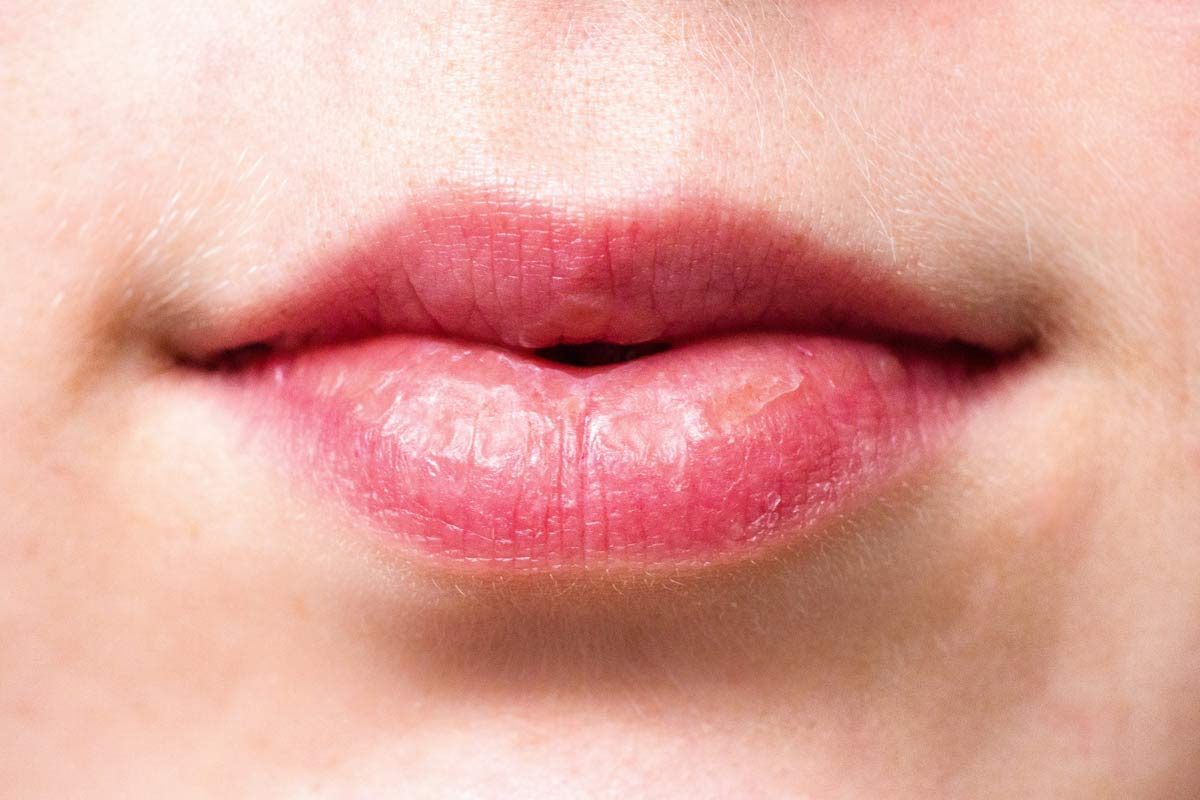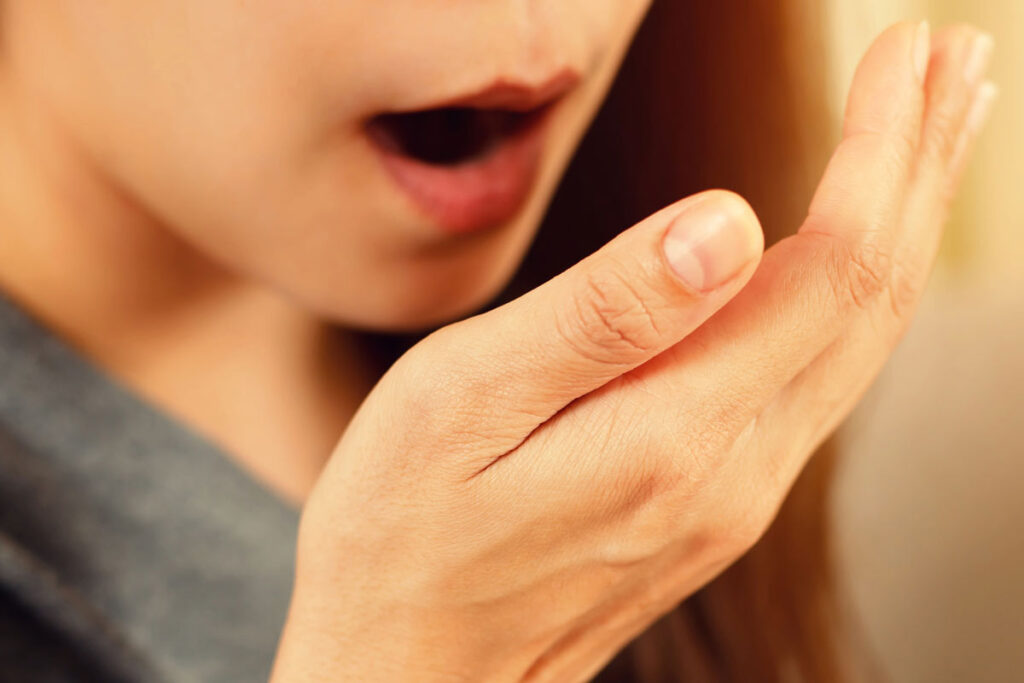About 50% of adults experience bad breath at some point. However, the odor usually disappears when you brush your teeth and use mouthwash after eating. Halitosis, also known as persistent bad breath, is an issue with dental health. It is not the temporary “morning breath” that many people experience. Generally, halitosis-related odors cannot be reduced by daily brushing, chewing gum, mints, or mouthwash. This condition may also indicate a more severe issue; such as gum disease or cavities.
Halitosis Symptoms
An offensive mouth odor that people may consider above the socially acceptable limit is the primary symptom of halitosis. Depending on the underlying cause, the smell of breath can change. As it can be challenging to judge your mouth odor, it is best to ask a close friend or relative to do so.
Halitosis Causes
Just as there are numerous sources of bacteria in the mouth, there are multiple causes of bad breath. The following are potential causes of halitosis:
Specific Foods
Your oral health and your breath are influenced by what you eat. All food, including garlic and onions, is absorbed into the bloodstream. Therefore, the food may impact your breath until it leaves the body.
Inadequate Dental Care
Food persists in the mouth without proper and consistent brushing, flossing, and routine dental checkups. Bacteria thrive in this environment. Food that builds up on the tongue, gums, or teeth may decay. It also leaves a bad taste and smell in the mouth.
Improper Denture Cleaning
Incorrectly cleaned dentures may gather bacteria, fungus, and food particles, all of which lead to bad breath.
Dryness of the Mouth (Xerostomia)

Halitosis frequently has this condition as a significant component. When saliva production significantly reduces, the mouth cannot self-clean and eliminate food residue and debris. In addition, some medications, a problem with the salivary glands, or always breathing via the mouth instead of the nose can all contribute to dry mouth.
Other Mouth, Nose, and Throat Conditions
Sometimes, tiny stones that develop in the tonsils and are covered in odor-producing bacteria might cause bad breath. The same conditions that can contribute to postnasal drips, such as infections or long-term inflammation in the nose, sinuses, or throat, can also result in bad breath. Diabetes: Gum disease is more common in diabetics, and because gum disease can raise blood sugar levels, it can make managing diabetes more difficult.
Halitosis Treatment
- You should floss once every day and brush twice daily for at least two minutes each time. Remember to brush your tongue or use a tongue scraper, which you can purchase in the oral health section.
- Use an antibacterial mouthwash without alcohol.
- Visit the dentist frequently for cleanings and examinations. This might occur once every six months for some people. However, some people require more frequent visits to maintain good oral health.
- To help prevent dry mouth, drink a lot of water.
- Increase saliva production by chewing sugar-free gum, sucking on sugar-free candies, or consuming nutritious foods that consume much chewing. In addition, your dentist may suggest or prescribe products stimulating your body to produce saliva or artificial saliva.
- Avoid using tobacco, alcohol, or caffeine as they can cause dry mouth.
- Your doctor might recommend seeing a gum specialist (periodontist) if you have gum disease. Gum disease can cause your gums to move away from your teeth, leaving large pockets overflowing with bacteria that produce foul odors. These bacteria can occasionally only be removed by professional cleaning. Additionally, your dentist might advise removing defective dental fillings that serve as a haven for bacteria.
When to Visit the Doctor
Review your oral hygiene routines if you experience bad breath. Consider making lifestyle adjustments like drinking plenty of water, using dental floss, and brushing your teeth and tongue after meals. Visit your dentist or doctor if easy self-care methods are unsuccessful in curing your bad breath so you can be sure it doesn’t result from a more severe condition. If you’re suffering from bad breath and live in Thornhill, Ontario, contact us at Skyrise Dental and schedule an appointment to get rid of your halitosis or any other dental diseases.



